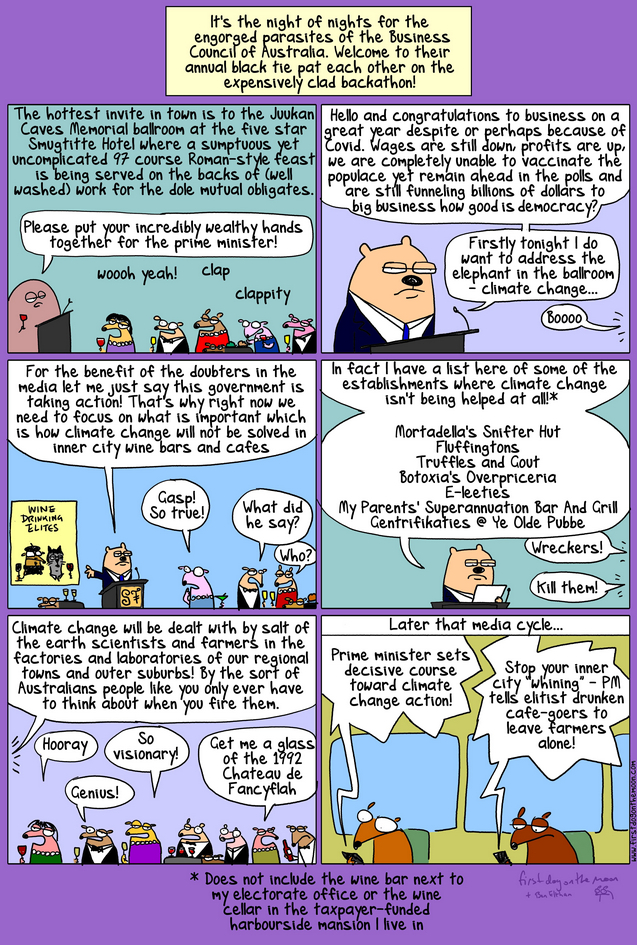 |
| The pledge nearly doubles that of President Obama's. (AP: Evan Vucci)
|
Key Points
|
"This is the decade we must make decisions that will avoid the worst consequences of the climate crisis," Mr Biden said at the White House.
President Biden: "The United States sets out on the road to cut greenhouse gases in half, in half, by the end of this decade...these steps will set America on a path of net zero emissions economy by no later than 2050." pic.twitter.com/HyjHt45g0J — CSPAN (@cspan) April 22, 2021The IPCC, the UN's climate science panel, has calculated the global 2030 and 2050 emissions reduction targets need to give the world a "high likelihood" of keeping the Earth from warming to 1.5 degrees Celsius above pre-industrial levels by 2100.
If temperatures rise between 1.5C and 2C of warming, the IPCC predicts that coral reefs will decline from 70-90 per cent to more than 99 per cent.
Sea level rise will displace a further 10 million people by the end of the century at 2C compared with 1.5C, and animal extinctions — as well as heat related mortality in people — will be far greater at 2C.
Scott Morrison's opening remarks not heard
 |
| World leaders representing almost all of the world's continents were invited to the summit. (AP via Yonhap: Lee Jin-wook) |
Prime Minister Scott Morrison also made an appearance, but suffered a temporary setback after he could not be heard at the beginning of his address — something that was only corrected after the intervention of US Secretary of State, Antony Blinken.
Jair Bolsonaro denounces rainforest destruction, after overseeing a large increase in it, and now Scott Morrison is stuck on mute — Oliver Milman (@olliemilman) April 22, 2021Mr Morrison did not make any new pledges, and said Australia was "on the pathway" to net-zero emissions through new technologies.
Unlike other countries, Australia has not set a concrete deadline to achieve net-zero emissions, which has fuelled long-standing perceptions from abroad that the country has been a laggard on climate change action.
At the summit, French President Emmanuel Macron said the world couldn't afford to dawdle.
 |
| Mr Macron broadcast his address from the Elysee Palace. (AP: Ian Langsdon, pool) |
"We need to move more quickly to implement the commitments for 2030. A plan of action that is clear, measurable and verifiable.
"Basically, 2030 is the new 2050."Mr Macron's sense of urgency was heeded by two other countries at the summit: Canada and Japan.
Prime Minister Yoshihide Suga raised Japan's target for cutting emissions to 46 per cent by 2030, up from 26 per cent.
Environmentalists wanted a pledge of at least 50 per cent while Japan's powerful business lobby has pushed for national policies that favour coal.
Meanwhile, Canada's Prime Minster Justin Trudeau raised his country's goal to a cut of 40-to-45 per cent by 2030 below 2005 levels, up from 30 per cent.
'The US is back'
America is back. We rejoined the Paris Agreement and are ready to rally the world to tackle the climate crisis. Let’s do this.
— President Biden (@POTUS) April 22, 2021
The Biden Administration has come under heavy pressure from environmental
groups, some corporate leaders, the UN secretary general and foreign
governments to set a target to cut emissions by at least 50 per
cent this decade to encourage other countries to set their own
ambitious emissions goals.
The US climate goal also marks an important milestone in Mr Biden's broader plan to decarbonise the US economy entirely by 2050 — an agenda he says can create millions of good-paying jobs but which many
Republicans say they fear will damage the economy.
Mr Biden's recently introduced $US2.3 trillion infrastructure plan ($2.98 trillion) contains numerous measures that could deliver some
of the emissions cuts needed this decade, including a clean energy standard
to achieve net zero emissions in the power sector by 2035 and moves to
electrify the US Federal Government's vehicle fleet.
The US emissions cuts are expected to come from power plants, vehicles,
and other sectors across the economy, but the White House did not set
individual targets for those industries.
The target nearly doubles former President Barack Obama's pledge of an
emissions cut of 26-to-28 per cent below 2005 levels by 2025.
Sector-specific goals will be laid out later this year.
The American Petroleum Institute, a large US oil and gas lobbying
group, cautiously welcomed Mr Biden's pledge but said it must come with
policies including a price on carbon, which is a tough sell among some
politicians.
A Biden Administration official said with the new US target, enhanced
commitments from Japan and Canada, and prior targets from the European Union
and Britain, countries accounting for more than half the world's economy
were now committed to reductions to keep global temperatures from rising
above 1.5 degrees.
"When we close this summit on Friday, we will unmistakably communicate … the
US is back," he said.
Links
- United States President Joe Biden launches global climate summit by pledging to cut US emissions in half by 2030
- US President Joe Biden pauses oil and gas leases, cuts subsidies in 'bold' climate steps
- Scott Morrison inches Australia towards 2050 net zero emissions, but distances himself from 'inner city' types
- Will we make it? Are Australia’s efforts to curb global warming enough to meet our Paris target?
- IPCC issues dire climate warning, says coal must go to save Great Barrier Reef
- The Paris climate agreement explained


